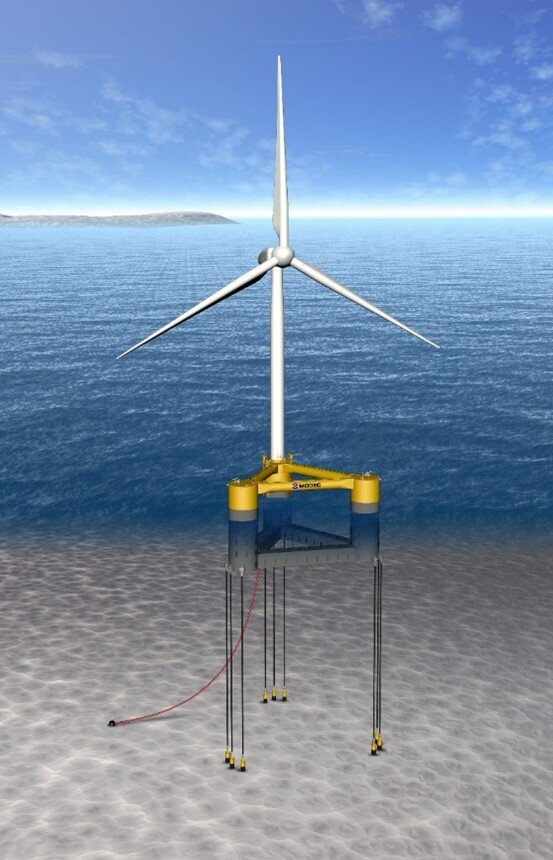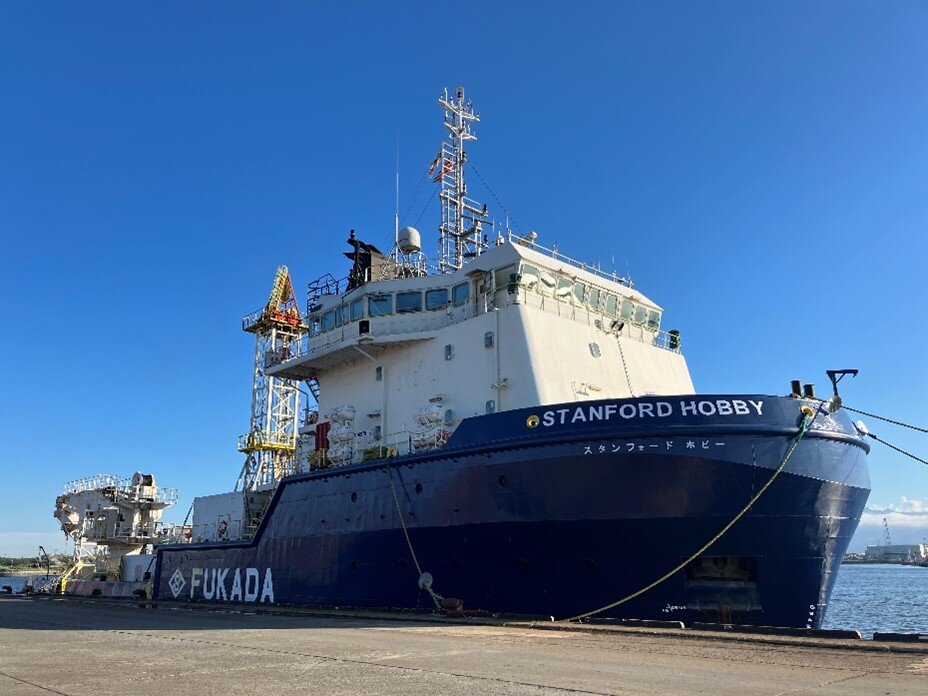Launch of Survey off Ishikari Bay, Hokkaido, in Preparation for Verification Testing of Power Generation Using TLP Floating Offshore Wind Turbines
Tokyo, Aug. 19, 2022
MODEC, Inc. (“MODEC”, President & CEO: Takeshi Kanamori) announced that MODEC, JERA Co., Ltd., (“JERA”), Toyo Construction Co., Ltd., and Furukawa Electric Industry Co., Ltd. (“the Consortium”), today launched a subsea ground survey ("the Survey") in Ishikari Bay, Hokkaido, in preparation for verification testing of power generation using the tension leg platform (“TLP”*1) floating offshore wind turbines.
The survey is a part of the "Project to Develop Cost-Reducing Technology for TLP Floating Offshore Wind Turbines*2" which the Consortium was selected to conduct by the New Energy and Industrial Technology Development Organization (“NEDO”) under its Green Innovation Fund program, and aims to understand the geotechnical structure and other characteristics of the seabed, which are necessary in setting the design parameters of TLP floating offshore wind turbines. JERA will conduct the Survey based on the environmental conditions applicable to TLPs that were provided by MODEC.
The Consortium will move forward in conducting surveys and studying plans in anticipation of future verification testing of power generating using TLP floating offshore wind turbines. In formulating plans for verification testing, the Consortium will continue to consult with local fishing industry, residents, government administrations, and other stakeholders to ensure their understanding. In the light of these consultations, MODEC will progress with the engineering and design work for TLPs, establishment of supply-chain of platform and mooring and cost-reducing platform installation method.
MODEC has been providing competitive floating solutions for the offshore oil and gas industry and recognized as a leading specialist for floating oil and gas production systems such as Floating Production Storage and Offloading (FPSO) vessels and TLPs. As for TLPs, MODEC has the world's best track record, and its experience and technology enable the compact TLP with the large-capacity wind turbine to be realized, and high social acceptability and economic efficiency as well. Toward the early realization for floating offshore wind turbines by using next-generation TLP, MODEC works together with JERA, Toyo Construction and Furukawa Electric.
*1
TLP systems are expected to reduce the cost of power generation because the high stability of tension mooring to a seafloor foundation enables installation of large 15 MW-class wind turbines, which have the potential to become mainstream in the future, on compact floating platforms. In addition, TLP’s mooring lines are expected to be more socially acceptable than other mooring systems because they can reduce the space occupied under the sea by 1/1,000 approximately (in case of 100m water depth, as an example) and have less impact on existing businesses such as the fishing industry and ship operations.
*2
MODEC, together with JERA, Toyo Construction, and Furukawa Electric, has received, on January 21, 2022, notice of acceptance of their joint grant application, under the Green Innovation Fund program of NEDO, to conduct the 2-year project to develop cost-reducing technology for TLP floating offshore wind turbines.


